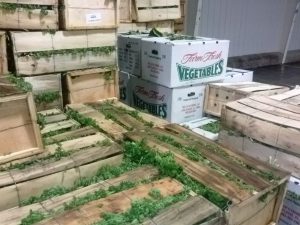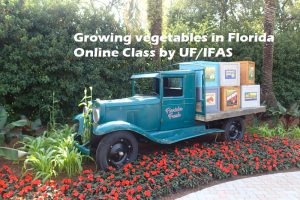Food Security
Food security has become a hot subject for some folks. With commodities moving quickly around our globe it’s hard to say just where your food is coming from. Labeling may help with some foods but with fruits and vegetables it seems a little more complicated. Most of us like to know that our produce is local. This isn’t necessarily possible since all produce is seasonal. For instance, during mid-summer, you can bet your tomatoes will not be coming from Florida. Nevertheless, being closer to home seems to be most people’s preference.
Pesticides and Organic
Most everyone would agree that fewer pesticides are a good thing. Modern farming for the masses doesn’t always afford the farmer to grow vegetables like you would at home. Pesticides are often sprayed preventatively with attention given to controlling common pests. A squash grower can’t afford powdery mildew or pickle worms when their livelihood is at stake. Pests like these could do maximum damage before the grower knew they were there. Luckily, the United States regulates pesticides, when used properly, they are safe and effective. Even organic growers use pesticides. Organic pesticides are from natural sources and generally easier on the environment, and to beneficial insects that may hang out around your garden. Still, they kill insects and may be deadly to all insects caught up in the spray. Once organic pesticides dry on the plants, they are usually safer than traditional pesticides for beneficial visitors. Whether your produce is organically or traditionally grown, washing them before you prepare them is always a good idea. When gardening at home using pesticides may be a necessity when you are having a problem with insects damaging your plants. Don’t forget to read the pesticide label.

To know your food is to grow your food
Growing your own food can be challenging yet rewarding. It also ensures you know how it was grown. Like the farmer growing squash, you’ll want to use some preventative pesticides yourself. For example, If you have ever tried to grow corn in Florida, you know pretty quickly that caterpillars are not your friends and they make it next to impossible to get a successful crop. Using an organic pesticide such as BT can save you a lot of heartaches. BT is the short name for the beneficial bacteria, Bacillus thuringiensis. This bacteria naturally occurs in soils and there are some 70 known strains of it in nature. As an organic pesticide, it is lethal to caterpillars when ingested but harmless to humans. It should be sprayed on at regular intervals to be effective at discouraging caterpillars from eating your food. Reading the label will tell you exactly how much and how often to spray. The pesticide label gives complete directions on how to use each product safely
Come learn with us
UF/IFAS Extension, HIghlands County is offering an online class on vegetable gardening on January 9th running from 9 am until 12:30 pm. Click Here to register or learn more. Along with the class, you’ll get one hundred pages of University of Florida information on Florida vegetable gardening that I will send you as a PDF. You’ll also get 5 packs of vegetable seeds of your choice. You will have to pick the seeds up in Sebring. Call the Extension office at 863 402-6540 to learn more about upcoming classes. Below you will find a link to sign up for our newsletter. We usually have a different class on the 2nd Saturday of every month! February’s class will be on canning and preserving food.

Stay in touch!
In Highlands County, our office is at 4509 W George Blvd., Sebring. The Master Gardener Help Desk is open Monday – Friday from 9 AM to 3:30 PM.
That’s what’s new from the Hometown Gardener. Like and Follow me on Facebook at Hometown Gardener.
Read my other blogs by clicking here.
Sign up for our Highlands County Master Gardener Volunteer, “Putting Down Root” Newsletter Here.
Join our Facebook groups Highlands County Master Gardeners, Science-Based Florida Gardening Answers, Central Florida Butterfly and Pollinator Club, and Heartland Beekeepers
 0
0
